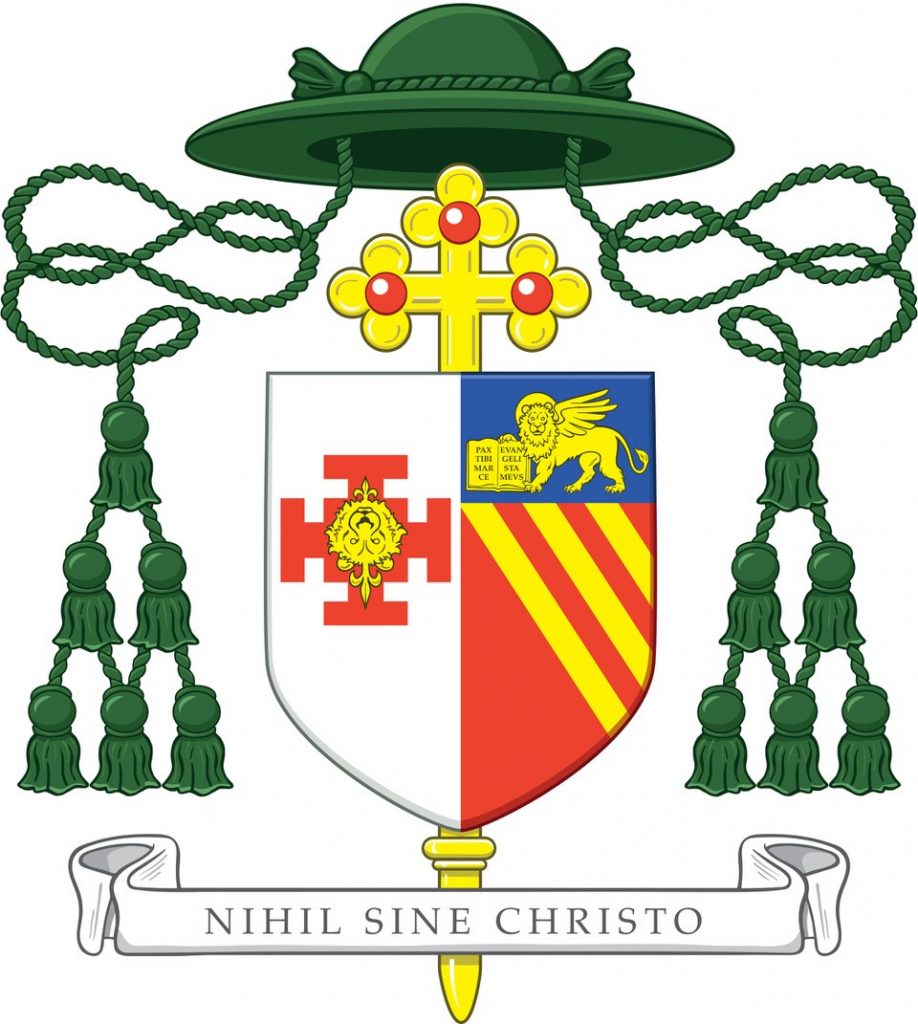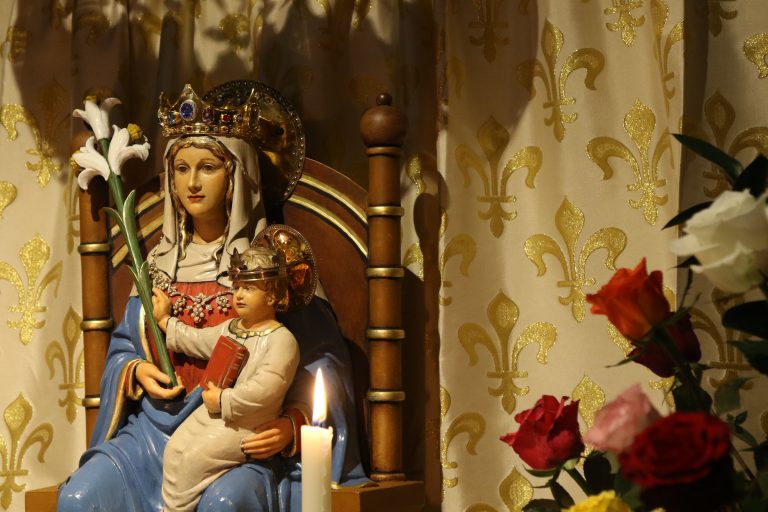
My dear brothers and sisters,
I think of you all each morning at the Altar and each evening as we pray the Angelus before the statute of Our Lady in the Cathedral. I think of your families and your work; of the loneliness of old age and the generous hopes of youth; of those seeking their vocation, especially the men discerning their vocation at the Cathedral and our seminarians preparing for the priesthood and the young couples preparing for marriage; I think of all our priests and deacons and consecrated women and men, and of the whole mission of our Diocese. We know that in the offering of every Mass our lives, our prayer, our work and our sufferings are “united with those of Christ and his total offering, and so acquire a new value”i. In the simple prayer of the Angelus we also seek to unite ourselves to the “yes” Mary gave to God’s word and thereby to Christ Himself. In the Angelus we say with Our Lady, “Let it be to me according to your word”.ii This is a perfect prayer to accompany the Year of the Word.
At the beginning of Lent, the Book of Genesis tells how human history began with our first parents saying “no” to God and his loving purpose. The Catechism of the Catholic Church explains that: “Man, tempted by the devil let his trust in his Creator die in his heart and, abusing his freedom, disobeyed God’s command”iii. This is original sin and “all subsequent sin would be disobedience toward God and lack of trust in his goodness”.iv Yet amid the disaster of this primeval fall, we hear the first announcement of the Gospel telling of the Saviour to come and of a New Eve, the Mother of Christ, who would truly be the Mother of all who live. Together with Our Lady we now repeat her fiat, her “yes” to all God asks of us and to the grace God wishes to pour into our hearts.
In a time of amnesia – forgetfulness – of the Christian past, we recall how England began with this desire to say “yes” to God’s grace, in order that a once pagan people might share Christ’s victory in the wilderness by learning to live “by every word which comes from the mouth of God” and worshipping and serving the Lord God alone.v Our national identity would be forged by the Christian faith we now share. England’s Monarchs would entrust this land to the Mother of God so that, like Mary, we might respond to God’s word in faith. They recognised England’s high destiny to be a place where the joy of the Annunciation will never fade. vi
This year, the Bishops invite us to renew that solemn act of entrustment to the Blessed Virgin Mary amidst the de-Christianisation of our society, re-echoing the call with which Lent begins, “Come back to me with all your heart”.vii On the Fifth Sunday of Lent, we will make this act of entrustment together at the end of Mass. In Shrewsbury Diocese, I want us to also make this entrustment throughout Lent using the simple and profound words of the Angelus. Where Monarchs once acted on behalf of their people, today may this same act of dedication be renewed in the hearts of each one of us. Let us entrust ourselves, our families, our diocese and our whole nation to the Mother of God that we may say with her, a decisive “yes” to God’s grace and God’s plan for our lives.
The Angelus seems especially appropriate for this purpose, for it is the prayer of the Angel’s announcement to Our Lady. Following the Second Vatican Council, Saint Paul VI commended the Angelus prayer especially for our times as it vividly recalls with the words of Scripture the Incarnation of the Son of God and leads us to pray that we may be led “by his Passion and Cross to the glory of his Resurrection”. viii Pope Paul asked us to use this prayer “whenever and wherever possible” amidst our working day, however busy we might be.
This Sunday, prayer cards will be distributed across the Shrewsbury Diocese so we can have the words of this beautiful prayer to hand. I wish to invite you to pray the Angelus with me each day and especially around midday on Wednesday 25th March, when we celebrate the great feast of the Annunciation. The two or three minutes we give to this prayer will be like a ‘breath of fresh air’ in the middle of the day, allowing us to raise our minds and hearts to God and to re-direct all to His glory.
United with you in this prayer and entrusting us all to the most pure heart of Mary,
+ Mark
Bishop of Shrewsbury

